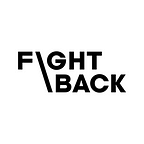Apps on prescription
by Tim Bogdan
This week the first two digital health applications (DIGAs) in Germany have been officially approved by the state and are now listed in the DIGA registry. In other words, physicians and psychotherapists can now prescribe these apps to patients as is the case with regular medical prescriptions.
For health businesses nationwide, this is exciting news. Germany is now the first country in the world to give healthcare companies access to more than 73 million insured citizens as potential users by offering remuneration by statutory healthcare insurance. Roland Berger expects that digital products and services will reach a 12 % share of the overall health market in 2025, with a market size of 57 bn € in Germany and 232 bn € in the EU.
It is easy to predict that the now approved Kalmeda (Tinnitus App) and Velibra (Anxiety disorder solution) will be only the first of a long list of companies to step into this new market. 21 more applications are already in the approval process and 75 are under consultation.
In this week’s newsletter, I would like to highlight an article showing the international perspective on the recent developments in the German healthcare system and what is now needed to be successful. In addition to this, I found two interesting industry announcements just this week from Apple and Microsoft. Enjoy reading.
The next months will show if doctors and patients accept this new format or if critics like the association of Statutory Health Insurance Physicians are proven justified in their scepticism. We need to ask ourselves:
How much are we willing to accept (digital) innovations in healthcare as part of the new normal?
One thing is for sure: These are exciting times to work within healthcare innovation.
This article was first published in the weekly FightBack Newsletter. Subscribe here for regular inspiration on impactful corporate innovation.
